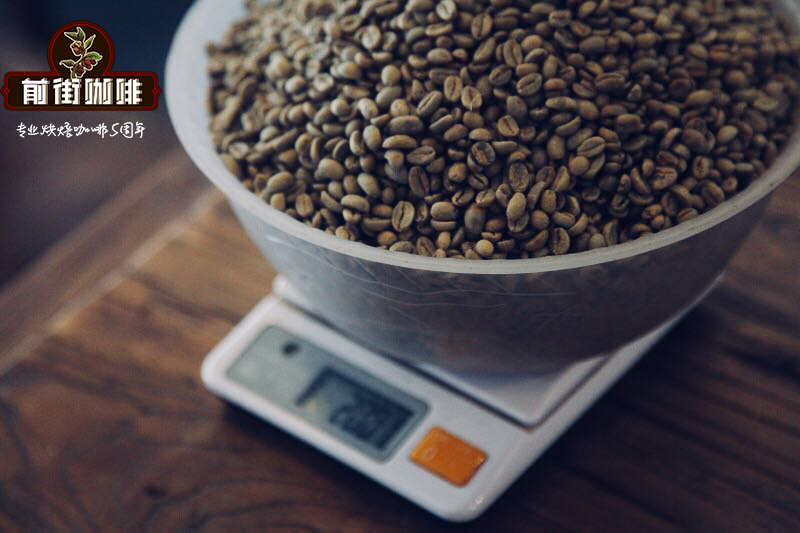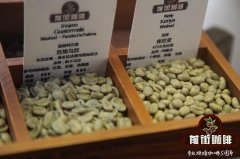Coffee tips: what is the price of Arabica coffee beans in coffee producing areas

Professional coffee knowledge exchange more coffee bean information please follow the coffee workshop (Wechat official account cafe_style)
Arabica _ Arabica coffee beans _ Arabica and Robusta
Coffee beans are baked from the fruits and seeds of this plant.
Coffee trees belong to the genus Coffea of the family Rubiaceae, a dicotyledonous family of angiosperms. There are about 70 species of coffee plants, of which there are two important commercial crops, one is Coffee Arabica, the other is Coffee Canephora. Many people have never heard of the Congolese species, which is the so-called Robbata species. In fact, the Robusta species is only one of the Congolese species, but it is well-known, so it has become synonymous with the Congolese species.
Arabica species account for about 60% of current coffee production, and there are many varieties, such as Tipica and Bourbon, which have a generally popular flavor. But the disadvantage is that the disease resistance is weak. Most of the coffee familiar to consumers, such as Mocha, Kilimanjaro and Blue Mountain Coffee, are the commodity names of Arabica.
The Congolese species, which accounts for about 35% of the current coffee production, has a unique aroma and strong bitter taste like wheat tea, and is characterized by strong disease tolerance. since 1900, because of serious disease problems in the Arabica species, the Congolese species have become rapidly popular.
Other Liberian species (Coffee Liberica), produced in parts of Asia and West Africa, account for less than 1-2 per cent of total coffee production. Don't the remaining 60 or so coffee trees have commercial value? It is impossible to say for sure at this point. With the remarkable progress in biochemical technology in recent years, all kinds of coffee trees are likely to have new utilization value.
Arabica coffee beans & Origin introduction how much is Arabica coffee per jin?
Important Notice :
前街咖啡 FrontStreet Coffee has moved to new addredd:
FrontStreet Coffee Address: 315,Donghua East Road,GuangZhou
Tel:020 38364473
- Prev

What do you mean by 100% Arabica coffee beans? Morphological characteristics of arabica bean flavor and taste what grade is it in the producing area
Professional coffee knowledge exchange more coffee bean information please follow the coffee workshop (Wechat official account cafe_style) Arabica _ Arabica coffee beans _ Arabica and Robsta drink coffee all day long hear: what on earth is Arabica (Arabica)? The original coffee
- Next

Which coffee bean is the highest quality Arabica variety? How to choose Arabica coffee beans?
Professional Coffee knowledge Exchange more information on coffee beans Please follow the coffee workshop (Wechat official account cafe_style) Arabica _ Arabica coffee beans _ Arabica and Robusta historians point out that coffee originated from Kaffa in Ethiopia; as for coffee, the name comes from Arab Qahwah, which means plant drink. Later, the coffee
Related
- Beginners will see the "Coffee pull flower" guide!
- What is the difference between ice blog purified milk and ordinary milk coffee?
- Why is the Philippines the largest producer of crops in Liberia?
- For coffee extraction, should the fine powder be retained?
- How does extracted espresso fill pressed powder? How much strength does it take to press the powder?
- How to make jasmine cold extract coffee? Is the jasmine + latte good?
- Will this little toy really make the coffee taste better? How does Lily Drip affect coffee extraction?
- Will the action of slapping the filter cup also affect coffee extraction?
- What's the difference between powder-to-water ratio and powder-to-liquid ratio?
- What is the Ethiopian local species? What does it have to do with Heirloom native species?

